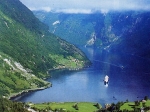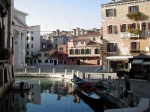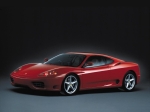The French Revolution
By 1789 France was on the verge of crisis, but revolution was not obvious before this time. Its causes were royal absolutism, ideas of the Enlightenment (embodied particularly in the person of Jean-Jacques Rousseau , a French philosopher ), and the American war of independence . King Louis XVI 's absolute refusal to give up power resulted in the storming of the Bastille in Paris on 14 July 1789. Louis was forced to call the Estates-General , the French Parliament , which had last been called in 1614 . This comprised of the three estates -- the clergy ( First Estate ), the nobility( Second Estate ) and the commons ( Third Estate ). The parliament issued the Declaration of the Rights of Man , demanding an end to the feudal system . The Tennis Court Oath of 1790 led to the drafting of a constitution by the Third Estate for a constitutional monarchy , which the King ignored. As the famine which had plagued France deepened, hundreds of Parisians marched on the royal chateau at Versailles , demanding bread. Louis was hunting at this time, (aaron dixon)and his hated Austrian wife, Marie-Antoinette , fled. Liberté, Égalité and Fraternité (Liberty, Equality and Fraternity) became the catchcry of the revolution. Word has it that when Louis saw this march on Versailles, he asked one of his ministers, "Is it a revolt?". This minister replied, "No Sire, it is a revolution." Louis failed to respond and increased violence led the King and Queen , with the royal children, attempting to flee to Austria . They got as far as Varennes, in northern France, before they were discovered and were forced to return to Paris . The Duke of Brunswick , the brother of Marie-Antoinette, issued the 'Brunswick Manifesto' , threatening war against the French revolutionaries if the Queen and the royal family were injured in any way. In 1791 the Committee of Public Safety , led by the sans-culotte formed the French Republic, headed by the lawyer Maximilien Robespierre . Over 40 000 Parisians were executed by the newly invented guillotine , in an effort to rid France of all aristocrats . Louis XVI and Marie-Antoinette were to share their fate in 1793 , or Year II of the Republic. Robespierre was eventually conspired against and guillotined in 1794. Austria and France went to war after the deaths of Louis and Marie-Antoinette, but the Austrians were defeated. The French Revolution marked the beginning of a new age — monarchy was now obsolete.
The 19th century
After the defeat of revolutionary France , the other great powers tried to restore the situation which existed before 1789 . However, their efforts were unable to stop the spread of revolutionary movements: the middle classes had been deeply influenced by the ideals of democracy of the French revolution, the Industrial Revolution brought important economical and social changes, the lower classes started to be influenced by Socialist , Communist and Anarchistic ideas (especially those summarized by Karl Marx in the Manifesto of the Communist Party ), and the preference of the new capitalists became Liberalism (a term which then, politically, meant something different from the modern usage). Further instability came from the formation of several nationalist movements (in Germany , Italy , Poland etc.), seeking national unification and/or liberation from foreign rule. As a result, the period between 1815 and 1871 saw a large number of revolutionary attempts and independence wars. Even though the revolutionaries were often defeated, most European states had become constitutional (rather than absolute) monarchies by 1871 , and Germany and Italy had developed into nation states.
The political dynamics of Europe dramatically changed three times over the 19th century - once after the Congress of Vienna , again after the Crimean War and a third time after the Franco-Prussian War . In 1815 at the Congress of Vienna, the major powers of Europe managed to produce a peaceful balance of power among the empires after the Napoleonic wars (despite the occurrence of internal revolutionary movements). But the peace would only last until the Ottoman Empire had declined enough to become a target for the others. This instigated the Crimean War in 1854 and began a tenser period of minor clashes among the globe-spanning empires of Europe that set the stage for the first World War . It changed a third time with the end of the various wars that turned the Kingdom of Sardinia and the Kingdom of Prussia into the Italian and German nation-states, significantly changing the balance of power in Europe.
Early 20th century : the World Wars
After the relative peace of most of the 19th Century , the rivalry between European powers exploded in 1914 , when World War I started. On one side were Germany , Austria-Hungary , Italy and Turkey (the Central Powers / Triple Alliance ), while on the other side stood Serbia and the Triple Entente - the loose coalition of France , Britain and Russia , which were joined by Italy in 1915 and by the United States in 1917 . Despite the defeat of Russia in 1917 (the war was one of the major causes of the Russian Revolution , leading to the formation of the communist Soviet Union ), the Entente finally prevailed in the autumn of 1918 .
In the Treaty of Versailles ( 1919 ) the winners imposed hard conditions on Germany and recognised the new states (such as Poland , Czechoslovakia and Yugoslavia ) created in central Europe out of the defunct German, Austro-Hungarian and Russian empires, supposedly on the basis of national self-determination. In the following decades, fear of Communism and the economic Depression of 1929 - 1933 led to the rise of extreme governments - Fascist or National Socialist - in Italy ( 1922 ), Germany ( 1933 ), Spain (after a civil war ending in 1939 ) and other countries such as Hungary .
After allying with Mussolini's Italy in the " Pact of Steel " and signing a non-aggression pact with the Soviet Union, the German leader Adolf Hitler started World War II in September 1939 following a military build-up throughout the late 1930s . After initial successes (mainly the conquest of western Poland, much of Scandinavia , France and the Balkans before 1941 ) the Axis powers began to over-extend themselves in 1941 . Hitler's ideological foes were the Communists in Russia but because of the German failure to defeat Britain and the Italian failures in North Africa and the Mediterranean the Axis forces were split between garrisoning western Europe and Scandinavia and also attacking Africa. Thus, the attack on the Soviet Union which had partitioned central Europe together with Germany in 1939 - 1940 , was not pressed sufficiently strongly. Despite initial successes, the German army was stopped close to Moscow in December 1941 . Over the next year the tide was turned and the Germans started to suffer a series of defeats, for example at Kursk and in the siege of Stalingrad . Meanwhile, Japan (allied to Germany and Italy since September 1940 ) attacked the British in south-east Asia and the United States in Hawaii on December 7 , 1941 ; Germany then completed its over-extension by declaring war on the United States. War raged between the Axis Powers (Germany, Italy, and Japan ) and the Allied Forces (British Empire, Soviet Union, and the United States). Allied Forces won in North Africa , invaded Italy in 1943 , and invaded occupied France in 1944 . In the spring of 1945 Germany itself was invaded from the east by Russia and from the west by the other Allies respectively; Hitler committed suicide and Germany surrendered in early May ending the war in Europe.
Late 20th century : the Cold War
World War I and especially World War II ended the pre-eminent position of western Europe . The map of Europe was redrawn at the Yalta Conference and divided as it became the principal zone of contention in the Cold War between the two newly emergent world powers, the capitalistic United States and the communist Soviet Union . The USA placed western Europe ( Britain , France , Italy , West Germany , Spain etc.) under their sphere of influence, establishing the NATO alliance as a protection against a possible Soviet invasion; the Soviet Union claimed eastern ( Baltic states , Ukraine , Belarus , Transcaucasia ) and central Europe ( Poland , Czechoslovakia , Hungary , Romania , Bulgaria , East Germany ), claiming the first directly and installing puppet governments in the second, and formed the Warsaw Pact . Europe was divided by a " Iron Curtain ". This situation lasted until 1989 , when the weakening of the Soviet Union led to glasnost and the ending of the division of Europe - Soviet satellites were free to remove Communist regimes (and the two Germanies were able to re-unify). In 1991 the Soviet Union itself collapsed, splitting into several states (the main one remaining the Russian Federation) and removing communists from most governments. The most violent breakup happened in Yugoslavia , in south central Europe. Four ( Slovenia , Croatia , Bosnia and Herzegovina and Macedonia ) out of six republics declared independence and for most of them a violent war ensued, in some parts lasting until 1995 . The remaining two republics formed a new Federal Republic of Yugoslavia, with Slobodan Milosevic as dictator. He led the country into a civil war in Kosovo , and was overthrown in massive demonstrations in Belgrade in 2000 . Following the change in government, the country changed its name to Serbia and Montenegro - also as a move to placate the frictions between the two federal units - and instituted (a fragile) democracy.
After the end of World War II, western Europe slowly began a process of political and economic integration, desiring to unite Europe and prevent another war. This process resulted eventually in the development of organisations such as the European Union and the Council of Europe . After the end of the Cold War, these organizations began to include nations within central Europe as well.
Early 21st century : the European Union
The process of integrating Europe was slow due to the reluctance of most nation states to give up their sovereignty . However, the process began to accelerate in the early 21st century . Whereas the European Union started out as a loose economic alliance among European nations, the European Union took further steps to more closely integrate the member states, and make the EU into a more supranational organisation in the early 21st century .
At the turn of the century, nations within the European Union had created a free trade zone and eliminated most travel barriers across their borders. A new common currency for Europe, the Euro , was established electronically in 1999 , officially tying all of the currencies of each participating nation to each other. The new currency was put into circulation in 2002 and most of the old currencies were phased out.
As of 2004 , the European Union is in the process of ratifying a new constitution , inducting additional member states (most of them in Central Europe ) and to consolidate various treaties. However, the proposed constitution is by many eurosceptics seen as a step towards a federative EU state, which is not uncontroversial. There has also been some notable disagreement as member states wrangle over, taxes, required standards to which applying states must be held before they are admitted to the EU, and over the distribution of voting power inbetween the more populous member states.
Some tension between the United States and many European countries was a result of the latter declining to participate in the US-led 2003 Invasion of Iraq . The process had a uniting effect on EU's Common Foreign and Security Policy and on a formerly barely existing "European Common Opinion" — in opposition against some US supportive governments .
The relations to Russia , and the development in Russia, are of increasing importance to the EU. Already five EU-members border to Russia, and extensions seem likely. Russia is also the EU's largest supplier of natural gas . Discussion on accomodations to Russian interests rise on the European agenda, not the least after the Western engagement in the 2004 Ukrainian presidential election .
.




